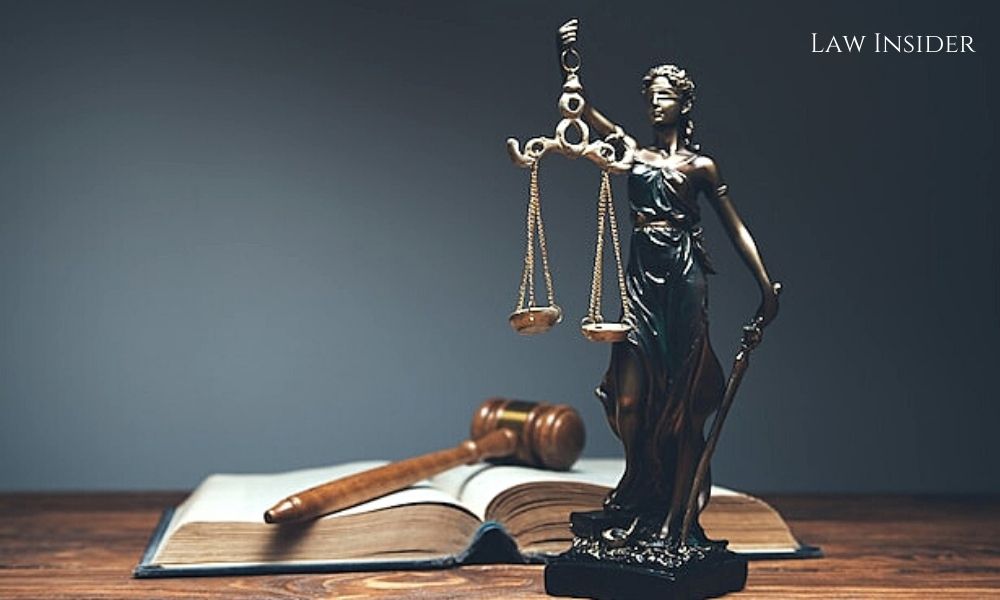Sakunjay Vyas
Published on: May 8, 2022 at 00:30 IST
The Two Judge Bench of Justice Dr. Dhananjaya Y. Chandrachud and Justice Bela M Trivedi of the Supreme Court upheld an impugned Judgment of the High Court, wherein the High Court was perfectly justified in exercising its supervisory jurisdiction under Article 235 of the Constitution and didn’t interfere with the disciplinary action taken against a judicial officer in Uttar Pradesh for passing orders to unduly favour certain parties.
The Supreme Court recently ruled that the most dishonest form of judicial behaviour is to show undue favour to a party.
The Facts of the present matter in hand are an Additional District Judge named Muzaffar Hussain was charged for exorbitantly enhancing the compensation in a batch of land acquisition matters in violation of settled principles to unduly favour certain subsequent purchasers.
That after he took voluntary retirement, the Allahabad High Court conducted a disciplinary enquiry against him for misconduct and he was found guilty. As a result, the State of Uttar Pradesh punished the curtailment of his pensionary benefits by 90%. When the officer filed a writ petition against the order of the state the High Court refused to interfere with the decision but at the same time reduced curtailment of pensionary benefits by 70%. Aggrieved by the decision the officer has filed the present appeal.
The Apex Court stated that the evidence and the materials on record show that the appellant has violated his judicial duties in the discharge of his duties and has issued the judicial orders without regard to the law, to favour the subsequent purchasers, who had no right to a compensation claim, and such decisions were acted upon with a corrupt motive.
“…there was enough evidence and material to show that the appellant had misconducted himself while discharging his duties as a judicial officer, and had passed the judicial orders in utter disregard of the specific provisions of law, to unduly favour the subsequent purchasers of the acquired lands who had no right to claim compensation, and that such orders were actuated by corrupt motive.”, The Court said.
The Apex Court further stated that the appellant had awarded enhanced compensation at an exorbitantly higher rate in favour of the subsequent purchasers/investors, who had no right to receive any compensation, more particularly when Section 6(e) of the Transfer of Property Act specifically prohibited the transfer of mere right to sue.
That appellant’s decision in these cases was in flagrant violation of law and equity, and against all judicial norms and propriety, with the intent of unduly favouring subsequent purchasers who did not legally qualify for compensation.
“…in flagrant violation of the cardinal principles of law and equity, and against all judicial norms and propriety, with a view to unduly favour such subsequent purchasers who had no legal right to receive the compensation.”, the court said.
The Apex Court further stated that a judge must decide the case based on the facts on record and the law applicable to the case. If he decides a case for extraneous reasons, then he is not performing his duties under the law.
That dishonesty and misconduct in the judicial system occur when judicial orders are passed on behalf of a party with undue favour.
That it is often said that “the public servants are like fish in the water, none can say when and how a fish drank the water” and just like like Caesar’s wife, a judge must be above suspicion.
“In our opinion, showing undue favour to a party under the guise of passing judicial orders is the worst kind of judicial dishonesty and misconduct. The extraneous consideration for showing favour need not always be a monetary consideration. It is often said that “the public servants are like fish in the water, none can say when and how a fish drank the water.”, the Court said.
As a result, the Apex Court upheld an impugned Judgment of the High Court, by stating that a judge must decide the case based on the facts on record and the law applicable to the case. If he decides a case for extraneous reasons, then he is not performing his duties under the law.

